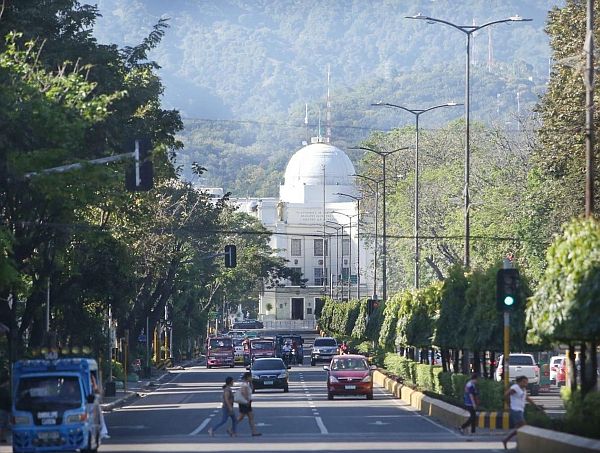
The Cebu provincial government led by Gov. Hilario Davide III
is pushing for economic zones in all seven congressional districts
of the province.
CAPITOL TO MOVE DEVELOPMENT TO THE COUNTRYSIDE
The Capitol is moving toward bringing greater development to the countryside as it proposes potential sites for at least 17 new economic zones within Cebu province, away from the highly urbanized Metro Cebu.
Cebu Provincial Planning and Development Office (PPDO) development management officer Jojo Tumulak said countryside development is an important area being looked into by the provincial government since it is one of six key agenda of Gov. Hilario Davide III.
“This intends to decrease migration to Metro Cebu because it is already congested. It is also expected to bring about local and regional growth by providing economic opportunities to the countryside, creating jobs, and increasing the people’s income level,” he said in a presentation during the Philippine Economic Zone Authority (Peza) 2017 Visayas EcoZone Summit held in Lapu-Lapu City last week.
More than 160 representatives from local government units (LGU), business groups, locators, and other stakeholders in the Visayas gathered for a two-day confab to identify potential economic zones in Central Philippines.
Participating LGUs, Cebu province included, presented their proposals to Peza on Friday.
The activity was part of the current administration’s thrust to establish ecozones in every town and city in a bid to industrialize the whole country.
There are currently 11 Peza-registered ecozones in Cebu, mostly concentrated within the metropolitan area.
In 1994, the Japan International Cooperation Agency (Jica) undertook the Cebu Integrated Area Development Master Plan Study (CIADMPS), which identified possible areas of development in the province.
Based on that study, Tumulak said the PPDO was able to determine which locations may be suited for industrial, tourism, agro-tourism, and retirement eco-zones.
He added that the proposal has yet to be presented before the Provincial Development Council (PDC), chaired by Davide.
The PDC will meet around the second week of March to discuss the proposed Provincial Development Plan (PDP) for the current term, said Tumulak.
Under the Peza proposal, the provincial government will eye one economic zone in each of the province’s seven legislative districts, with each ecozone seen to employ 10,000 workers and generate a total of P10 billion in annual revenues.
The PPDO initially set an area of around 100 to 200 hectares per ecozone, projecting to invest P10,000 per square meter for development.
This included roads, green areas, standard factory buildings, and other supporting enterprises.
Tumulak said there are currently 11 industrial estates in the province, but only five are fully operational including Carmen, Danao City, Lapu-Lapu City, Balamban, and the South Road Properties (SRP) in Cebu City.
The new zones
The proposal seeks to achieve full operations for Bogo City, Cordova, Toledo City, Minglanilla, Carcar City, and Dumanjug.
For tourism ecozones, the PPDO proposed the islands of Bantayan and Camotes, known for their pristine white beaches and caves; Badian, home of the Kawasan falls and exciting canyoneering escapades; and Oslob, famous for its whale shark-watching activities.
Among the potential sites for agro-tourism ecozones are the towns of Argao and Dalaguete in southern Cebu, otherwise known as the “vegetable basket” of the province; and Tuburan, which only recently started farming coffee and cacao.
The towns of Argao and Dalaguete, as well as the islands of Bantayan and Camotes are being eyed as potential retirement zones.
Up for the challenge
Tuburan Mayor Democrito Diamante, president of the League of Municipalities of the Philippines (LMP) Cebu, said this was a laudable initiative as it was expected to decongest the metropolitan area.
He said Peza has his 100 percent commitment as an individual chief executive.
“We do not have discussions with investors at the moment, but we are preparing to go into that direction,” he said in a text message.
Robert Go, Philippine Retailers Association (PRA) Cebu president, said he welcomed this development.
“Cebu itself is already commercialized, and to give more employment to countryside, it is best to put ecozones in far-flung areas, but (at the same time) put freeways to reach them,” said Go, who is a former regional governor of the Philippine Chamber of Commerce and Industry.
Go said it is better to transform each town or city into an ecozone, instead of declaring the whole province as one such area.
Charito Plaza, Peza director general, clarified that while Cebu can be considered “one whole ecozone,” it can only be so in a figurative sense as it will be comprised of several ecozones.
She pointed out that when an area is declared an economic zone, businesses within it are subject to certain incentives and benefits offered by Peza.
Peza incentives are only available to certain industries and not across all businesses, such as restaurants or barbershops, among others.
The authority is set to evaluate all proposals from Luzon, Visayas, and Mindanao.
Peza held the Mindanao leg of the Ecozone Summit in Davao City earlier this month while the Luzon leg in Baguio City is set for the third week of March.
By the end of March, Plaza said Peza hopes to produce a map of existing and potential ecozones to help prospective locators identify where they want to invest.
Disclaimer: The comments uploaded on this site do not necessarily represent or reflect the views of management and owner of Cebudailynews. We reserve the right to exclude comments that we deem to be inconsistent with our editorial standards.
